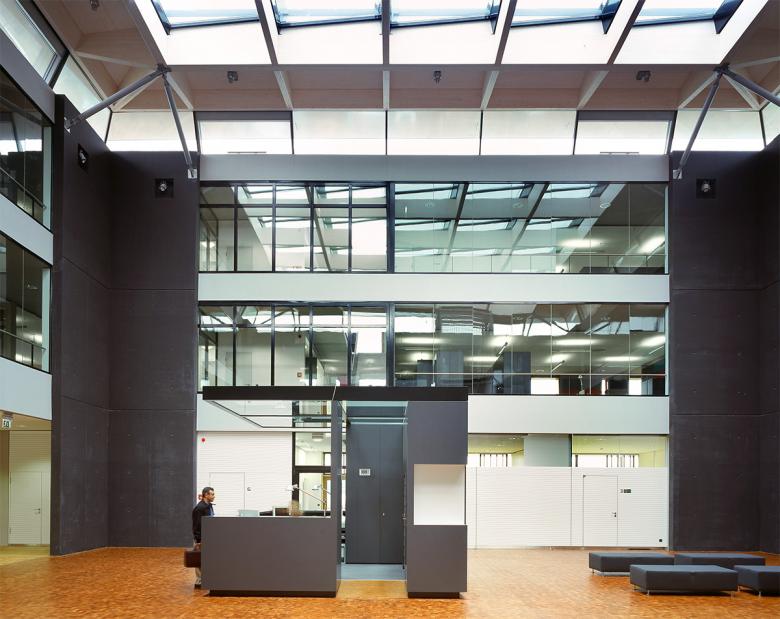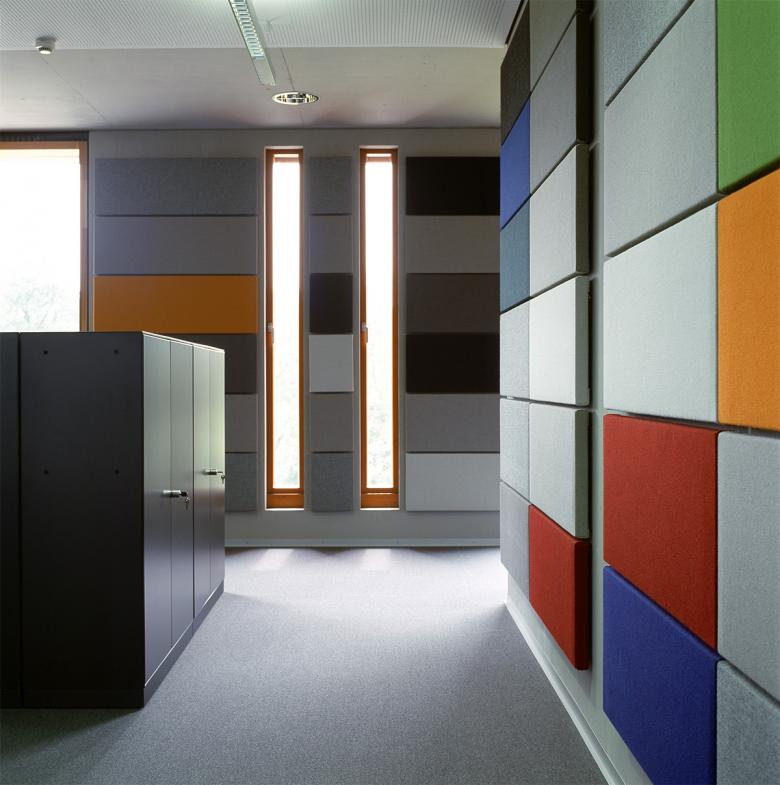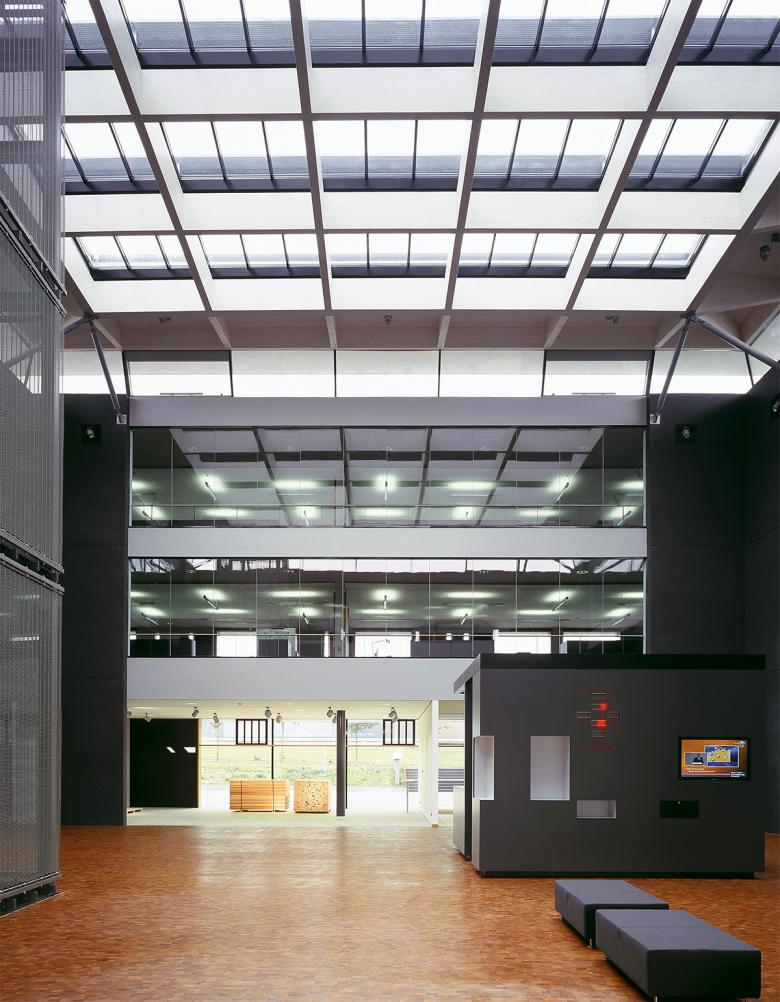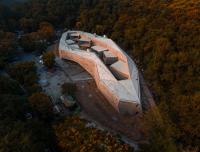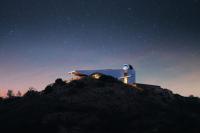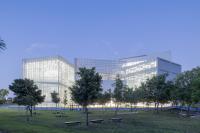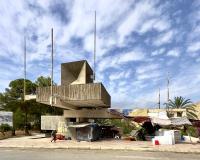Office Building / Headquarters
Creuzburg, Germany
For the employees of the head office in Creuzburg (Thuringia), the construction of a new administration building was intended to create optimum working conditions – both in daylight and artificial light as well as in terms of the indoor climate. The client (an export-oriented, medium-sized company in the woodworking industry) took this building project as an opportunity to develop an overall urban planning concept for the entire company premises and to restructure the property as a whole, also with a view to future expansion.
The entire concept of the building is based on open communication and transparency. With “lean” building technology, it also achieved maximum energy efficiency and saved 65 percent of the primary energy of a reference building of conventional design.
On the ground floor, meeting and service rooms as well as a cafeteria are grouped around a central three-storey hall. The office areas on the two upper floors also face the atrium. Thanks to the generous glazing, they are very well illuminated.
A system of fabric-covered panels was developed to influence the “optical and acoustic room climate” positively. Over 1500 of these boards in 17 different colors, hanging in groups on the walls of the office units, ensure a pleasant visual appearance and acoustics. The visual effect of the fabric panels changes depending on the daylight and the point of the compass. In autumn, for example, different colors than in spring correspond to the colors of the surrounding nature and then come to the fore. The color impression also changes over the course of the day. These changing color effects are very subtle and enrich the atmosphere of the space. The colored areas are not the result of a mere random selection: They were carefully selected in terms of format, scale and proportion, quantity, density, surface and texture, reflectivity and interaction with neighboring color fields and placed in a targeted manner.
The black facade panels made of fiber cement contrast with the glass base. In cooperation with Solares Bauen GmbH / Fraunhofer ISE, the optimum ratio of closed and glazed facade elements was determined in advance for each direction. Although the proportion of glass surfaces ranges from 27 to 52 percent, the facade has a uniform appearance. A prefabricated, two-storey steel structure, supported on two steel-concrete composite supports on each side, forms the structural facade members.
The project received the German Facade Award 2002 for the ventilated facade. The jury's reasoning: “On the basis of a simple basic form, the designers make a convincing contribution to the type of office building: A raised square, from which an over-glazed courtyard is punched out, takes on the special functions on the recessed ground floor and the open-plan office workplaces on the two upper floors. Overall, the work is completely coherent, self-evident and reasonable, which also impresses with a disciplined choice of materials, harmonious proportions and a confident elegance.”
- Architects
- +Seelinger Architekten BDA
- Year
- 2001
- Client
- Pollmeier Massivholz GmbH & Co. KG
- Team
- Projektleitung in cornelsen+seelinger GbR: Dipl.-Ing. Martin Seelinger
- Structural Engineering
- Prof. Pfeifer+Partner, Darmstadt
- Energy Concept, Building Services Engineering
- Solares Bauen GmbH, Freiburg i. Br.
- Building Physics, Building Acoustics
- Ingenieurbüro Heinrichs, Büttelborn
- Award
- Deutscher Fassadenpreis 2002

